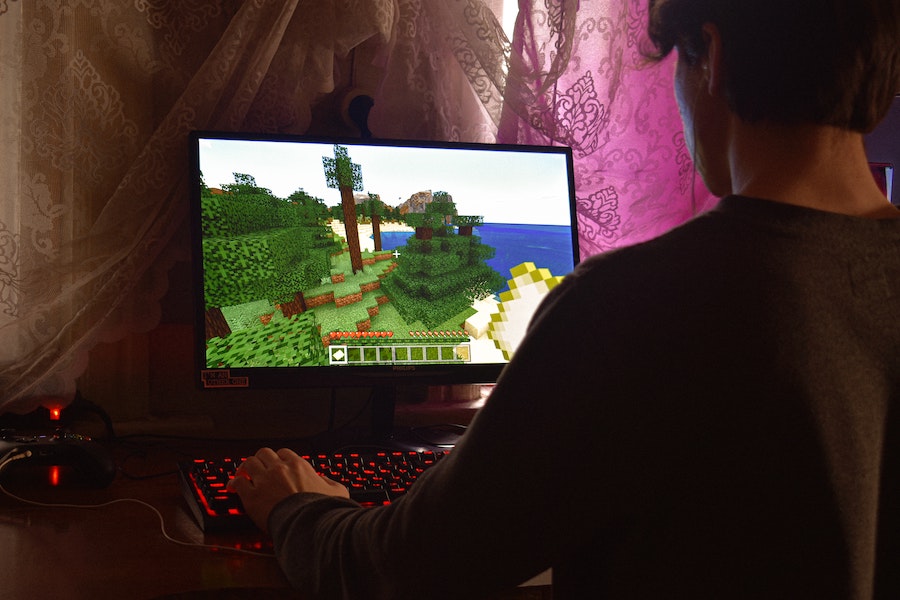Designing for Youth-Centered Moderation and Community Governance in Minecraft
Tekinbaş, K. S., Jagannath, K., Lyngs, U., & Slovák, P. (2021). Designing for Youth-Centered Moderation and Community Governance in Minecraft. ACM Transactions on Computer-Human Interaction, 28(4), 1–41. https://doi.org/10.1145/3450290
Summarized by Ariel Ervin
Notes of Interest:
- Online environments can promote technical, emotional, and social skills to positively influence online behaviors.
- Positive outcomes are more likely to form in communities where youths have overlapping interests with their mentors, have a sense of belonging and autonomy, and have access to activities that encourage involvement.
- Although there is ample research that examines community governance, not many of them examine how it affects social competence outcomes.
- This two-part study explores how youth-centered models of community governance can affect the behaviors of online players in Minecraft.
- Study 1: Examines how moderation styles influence youths’ reactions and engagement with conflict resolution in Minecraft.
- Study 2: Assesses how youths set up, mediated, modified, and bolstered program community norms.
- There were considerable effects of varying moderator styles on youth responses in study 1. These results were consistent with two different periods.
- Moderators played a facilitative role in motivating youths to be held accountable for the social climate of the setting and operationalize community agreements (CAs).
- When youths have sufficient support and resources, they are more likely to govern on their own.
- Evidence-based offline practices that stem from prevention & learning sciences can be adapted for online environments.
Introduction (Reprinted from the Abstract)
Online settings have been suggested as viable sites for youth to develop social, emotional, and technical skills that can positively shape their behavior online. However, little work has been done to understand how online governance structures might support (or hinder) such learning. Using mixed-methods research, we report findings from a 2-year, in-the-wild study of 8–13 year olds on a custom multiplayer Minecraft server. The two-part study focuses on the design of youth-centered models of community governance drawn from evidence-based offline practices in the prevention and learning sciences. Preliminary results point to a set of socio-technical design approaches shaping player behavior while also supporting youth interest in Minecraft-like online environments. More broadly, the findings suggest an alternative vision of youth’s capacity for ownership and control of mechanisms shaping the culture and climate of their online communities: managing player behavior while challenging current norms around adult control and surveillance of youth activity.
Implications (Reprinted from the Discussion)
The work presented in this article presents the findings of two online after-school programs in Minecraft: KC and Survival Lab. Both the ICPS-based approach to moderation in KC (Study I) and the use of CAs in Survival Lab (Study II) explored ways of empowering youth to take responsibility for (and resolution of) the interpersonal interactions they experience online. The ICPS dialoguing approach used by moderators was intended to increase youth agency by helping them to identify potential solutions to problems that arose on the server, including interpersonal conflict, while also serving as a mechanism by which a problem solving approach to conflict was internalized by the community itself. While moderators facilitated the dialoguing process, asking questions which encouraged youth to reflect on their own behaviors and how those behaviors might relate to others’ feelings and experiences, it was ultimately incumbent on youth to identify ways to resolve the conflict. In this sense, Study I was our first foray into understanding how online interventions could be designed explicitly (e.g., through moderator training) to enable the development of social competence, or deliberately target youth empowerment and agency. Study II, on the other hand, examined the effects of an easing of technical controls in favor of social ones, an emphasis on cooperative and interdependent play, and the use of CAs, in the context of an ICPS-like approach to community moderation. Our findings suggest that over time, youth conceptualized Survival Lab as an egalitarian online community, as they partook in collective decision-making to define, enact, and revise formal agreements guiding their play together. Revisions to CAs suggest that youth felt a sense of belonging to the community and observations of game play show youth acting with autonomy. We note that in Study II, while moderators did not always remember to fully use the ICPS approach piloted in Study I, they demonstrated a problem-solving mindset: giving youth opportunities to reflect on productive responses to conflict, for example, and refraining from “swooping in” when conflict arose. As in Study I, the moderation approach used in Study II played a key role in the outcomes observed: the ICPS-like moderation helped enable the development of an egalitarian community, gave moderators the ability to provide suggestions (but not to overpower youth), and provided youth participants with tools to scaffold their reflection.
To access this article, click here.














